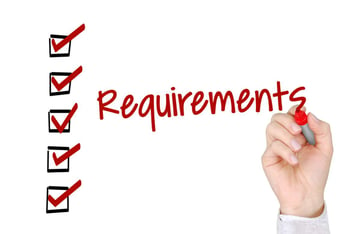Expert Insights: The Do's and Don'ts of Managing Virtual Teams
Building a virtual team is rapidly becoming a staple strategy in modern workforce management, including for property managers. The allure of assembling a skilled, flexible, and cost-effective team is irresistible.
However, as the saying goes, with great power comes great responsibility. A remote team can only be as effective as they are enabled to be. Therefore, managing virtual teams is an art form that requires a delicate balance of oversight, communication, and empathy.
Today, from our experience as property managers and working with virtual assistants, we deliver some of the top "Do's" and "Don'ts" of managing virtual team members effectively!
Things You Should Do To Manage Virtual Teams Well
There are plenty of things you can do to build and manage a successful team of property management virtual assistants, but where do you start? If you're looking for a few things to add to your virtual team management best practices, consider the following "Do's."
Build a Connection
Your virtual assistant is not just another gear in your organizational machine; they are a valuable human asset. Therefore, building a genuine connection with your virtual assistant goes beyond pleasantries — it's a strategic move that can significantly elevate both morale and productivity.
In a remote work environment, VAs can easily feel disconnected or isolated, leading to decreased motivation and output. Let's not forget lower morale often equates to lower-quality work, something no property manager can afford.
The concept is simple: treat your virtual assistant the way you would treat an in-house team member.
-
Invite them to team meetings, even if they are virtual
-
Make them part of decision-making processes where appropriate
-
Keep them in the loop about organizational news and updates.
This approach not only instills a sense of belonging but also enhances your VA's understanding of the business, enabling them to contribute more effectively.
Engaging with your virtual assistant on a personal level can also offer surprising benefits. Simple gestures like remembering their birthday, acknowledging milestones, or even asking about their weekend plans can humanize the working relationship. These nuances go a long way in showing your VA that they're more than just a hired hand; they are a respected and valued member of the team.
Additionally, a more personalized relationship allows for open, honest communication, which can be especially beneficial in property management, where clear, timely coordination is often needed. When your VA feels a personal connection, they are more likely to speak up about concerns, suggest improvements, or go the extra mile in times of need.
 Maintain Good and Consistent Communication
Maintain Good and Consistent Communication
Constant and clear communication is not just a thing you "could" do; it's a necessity for effectively managing remote teams.
The importance of this tenet is magnified when managing virtual teams where face-to-face interaction is replaced by digital correspondence. When it comes to ensuring the efficiency and effectiveness of your property management virtual assistants, communication stands as a cornerstone.
Unlike in-person interactions, where non-verbal cues can fill in gaps, the digital realm requires a more explicit form of communication. This means that to keep the wheels turning smoothly, you must establish a reliable and continuous flow of information with your virtual assistant.
Keeping regular contact aids you in numerous ways. First, it helps in setting priorities straight. Your virtual assistant needs to understand what requires immediate focus and what can wait. In the absence of clear communication, your VA is left to make these judgments themselves, risking misaligned priorities that can hamper project outcomes.
Second, early problem detection becomes feasible. You don't want small issues to escalate into major crises, potentially affecting your property management tasks and client satisfaction. Frequent check-ins allow you to catch potential red flags early on, be they misunderstandings, errors, or delays. This proactive approach saves you the pain and cost of crisis management later.
Be Intentional About Regular Communication
So, how can you keep this communication effective and consistent? Scheduled meetings are an excellent start. They offer a predetermined space for open dialogue, updates, and forward planning. These meetings don't have to be lengthy — sometimes, a quick 15-minute catch-up is enough to ensure everyone is on the same page.
However, don't let the schedule bind you. Spontaneous check-ins or quick updates via chat or email can be equally effective.
The idea is not to micromanage but to ensure that the lines of communication are always open. Your virtual assistant should feel comfortable approaching you with questions, updates, or even concerns, and vice versa.
Make Sure Expectations Align
Far too often, misunderstandings and frustrations arise from a lack of clarity surrounding roles, responsibilities, and performance metrics. When managing virtual teams, where direct supervision can be limited, having clearly defined expectations becomes even more essential for smooth operations and mutual satisfaction.
So, what exactly do you envision your virtual assistant doing? Are they responsible for handling customer inquiries, managing your calendar, executing social media strategies, or perhaps a combination of these?
Your VA should not have to guess what their scope of work is. The initial stage of your working relationship should include a comprehensive discussion about the roles they are expected to fill. A documented job description outlining these roles can serve as a valuable reference point for both parties throughout the engagement.
Then, defining responsibilities goes hand-in-hand with clarifying roles. Once your VA knows what roles they are filling, they need to understand their daily, weekly, and monthly tasks.
For instance, if one of the roles is customer service, what does that mean in terms of response time, query resolution, and follow-up procedures? Clearly articulated responsibilities leave no room for guesswork, making it easier for your VA to meet or even exceed your expectations.
Use Performance Metrics for Accountability
Performance metrics are the third pillar in establishing aligned expectations. How can you or your VA gauge success without measurable criteria?
These metrics could range from tangible outcomes like sales numbers or customer satisfaction scores to more qualitative measures such as the accuracy of work or timeliness in meeting deadlines. When you set these metrics, you're not just giving your VA targets to aim for; you're giving them a roadmap to excellence.
Additionally, these aligned expectations should be documented and revisited periodically. Needs and goals change over time, and your VA's responsibilities may need to adapt accordingly. Regular performance reviews, structured feedback sessions, or even casual catch-ups can be platforms to recalibrate expectations and set new targets.
Show Appreciation
While it may seem like a simple concept, the impact of showing appreciation, especially when managing a virtual team, can be profound.
The digital nature of remote work often deprives us of those small yet meaningful moments of face-to-face recognition that can significantly boost morale. However, your appreciation should not be lost in the ether; it must be communicated clearly and often to your virtual assistant.
When you show appreciation to your property management virtual assistant, you're doing more than just exercising good manners; you're engaging in smart business practices. You're also encouraging a positive work environment, even if that environment is virtual.
A happy and appreciated worker is more likely to put in extra effort, remain loyal to the company, and produce quality work. Given the competitive nature of the property management industry, having a motivated and dedicated virtual assistant can give you an invaluable edge.
However, not all forms of appreciation have to be material. Never underestimate the power of simple verbal affirmation. A quick message saying "Great job" or "I appreciate your hard work on that last project" can go a long way. In the absence of in-person cues like smiles or pats on the back, these affirmations serve as vital indicators that you value your virtual assistant's contributions.
What You Should Not Do When Managing Virtual Teams
Are there things property managers should avoid to improve the effectiveness of a remote team? Yes!
In our experience, here are a few things you should not do. These things could impede the success of your remote team.
Don't Skip Onboarding
Bypassing onboarding is like driving without a roadmap — you're bound to get lost.
Proper training and onboarding are essential for your VA to understand your work methods and expectations. This initial stage is also a great opportunity to build rapport and align your professional visions.
Even when choosing virtual contractors with property management experience through VPM Solutions, onboarding is a step that sets a good VA up for greatness as part of your team.
Don't Be Rude When Giving Feedback
A cornerstone of managing remote teams is effective feedback. However, always remember that your virtual assistants are human beings with feelings and aspirations.
While clarity is crucial, courtesy is equally significant. Harsh or rude feedback can hamper productivity and dampen the team's morale.
Give feedback as you would to any member of your team, and remember that an encouraging approach can often get much better results from any team member vs. a harsh or intimidating method of communicating needed improvement.
Don't Overwhelm Your VA From the Start
Test the waters before diving in. While your virtual assistant may be ready to jump in with both feet, sometimes starting them on a big project or complicated task can lead to a challenging first few days (or weeks) on the job for your new VA.
Start your virtual assistant off with simple tasks that help you gauge their skills and adherence to instructions. Starting small helps you identify and address potential gaps early on, forming a solid foundation for more complex responsibilities later.
 Why Choose Property Management Virtual Assistants?
Why Choose Property Management Virtual Assistants?
Virtual assistants have rapidly gained recognition as valuable team members who can handle a wide range of roles — but why should you specifically look for virtual assistants trained in property management?
The answer lies in the multiple strategic advantages they offer that go beyond mere task completion.
Time Savings
Time saved is money earned, especially in an industry that demands quick decisions and even quicker actions.
A virtual assistant for property management comes equipped with industry-specific knowledge and skills, reducing the training time and allowing you to delegate tasks almost immediately. Their expertise in property management software, tenant correspondence, and other specialized tasks means you don't have to spend valuable time bringing them up to speed.
This enables you to focus on more strategic elements of your business, such as growth initiatives or improving tenant relations.
Reduced Payroll Costs
Reducing payroll costs is another compelling advantage.
Hiring a full-time, in-house employee comes with additional costs like benefits, taxes, and workspace expenses. In contrast, virtual assistants offer a more flexible arrangement, often working on a project or hourly basis.
This adaptability allows you to ramp up or down as your workload dictates, giving you better control over your payroll costs. Moreover, virtual assistants, especially those from countries with lower living costs, can provide the same high-quality service at a fraction of the price of an in-house employee.
Better Customer Service and Efficiency
Enhancing customer service and efficiency goes hand-in-hand when you scale your business with a property management virtual assistant. With someone dedicatedly handling inquiries, scheduling maintenance, or following up on rent payments, your customer service standards are bound to improve.
Happier tenants and property owners translate to better reviews and potentially more business. The VA's specialized skills enable them to handle these tasks more efficiently than a generalist, elevating the quality of service you can offer.
Scale Your Business Faster
The versatility of property management virtual assistants makes them particularly valuable for scaling your business quickly.
Their training often spans various areas, from marketing and social media management to bookkeeping, maintenance coordination, and financial reporting. This multifaceted skill set means you can delegate a broad range of tasks depending on your current needs and future plans.
Your virtual assistant can adapt and take on more responsibilities as your business grows, ensuring a smooth scaling process.
Start Your Virtual Team With Property Management Virtual Assistants Through VPM Solutions
The key to managing virtual assistants effectively lies in the details — communication, expectation alignment, and genuine appreciation. Now armed with these insights, you're better prepared to lead a highly productive virtual team.
If you're ready to start building your team or add to a remote team you already have, you need the right property management virtual assistants! VPM Solutions offers thousands of skilled VAs with property management experience and skills, ready to be part of your remote team!




















